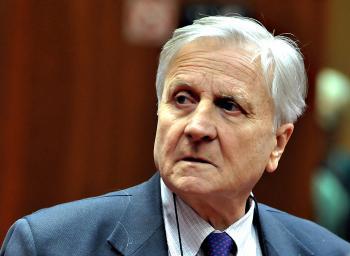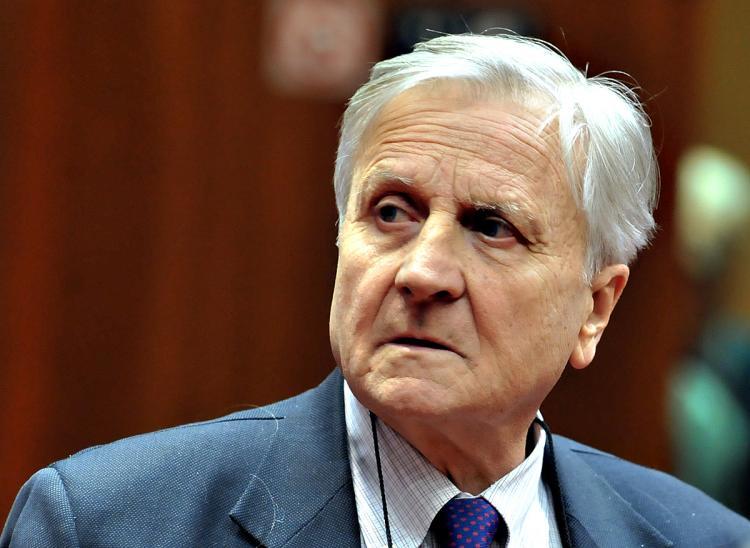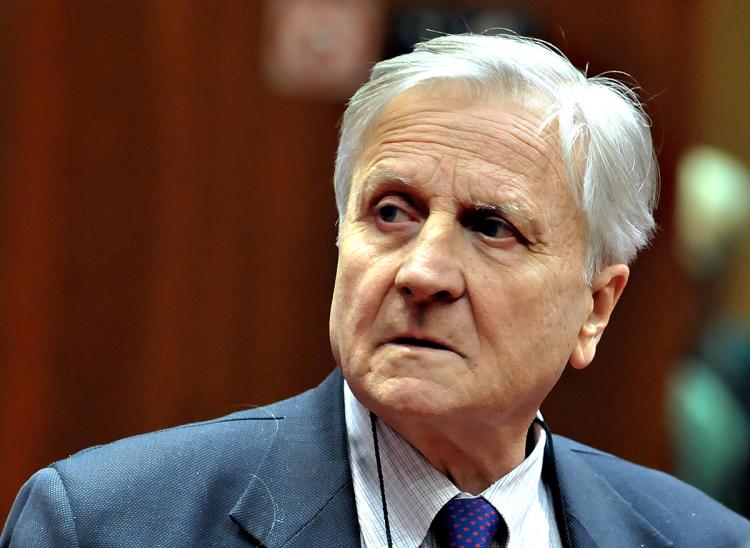Portugal, Spain, and Italy Feel Bailout Pressure
The European economy is being dragged down by its less successful members.

WORRIED: European Central Bank president Jean-Claude Trichet looks on at the ECOFIN Council meeting on Nov. 28 at the EU headquarters in Brussels. Economists fear that Ireland's recent financial woes may spread to other regional economies such as Italy and Spain. Georges Gobet/AFP/Getty Images
|Updated:





